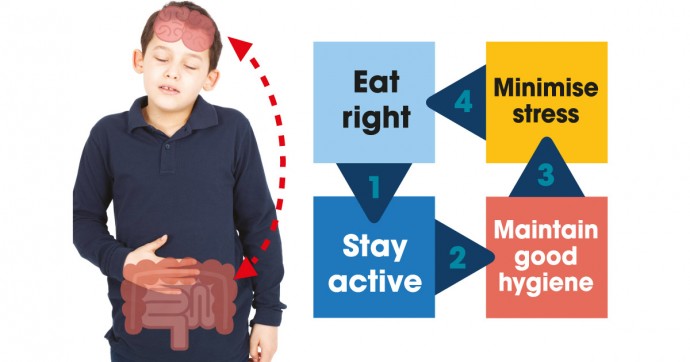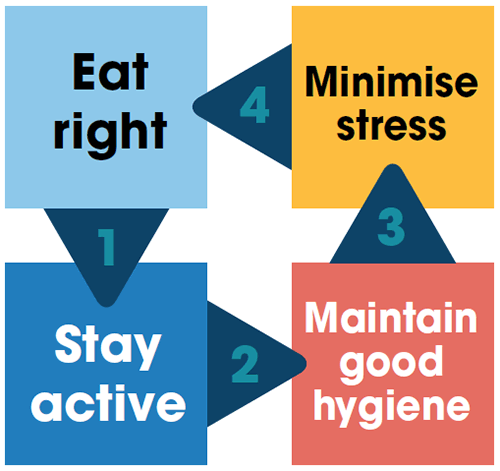Our brain and gut have more in common than you may realise. The gut is lined with over 100 million nerve cells called neurons. This high concentration of neurons is second only to the brain itself, and are both intimately connected.
Studies have shown that there is a strong link between patients suffering from digestive disorder such as irritable bowel syndrome (IBS) and mental health issues namely anxiety, depression and mood disorders. Here’s another example of how the brain directly affects the stomach; just thinking of your favourite foods is often enough to get your mouth watering and stomach growling!
On the other hand, the gut also responds to strong moods or emotions such as stress, anger, anxiety or depression; these can disrupt its normal digestive processes and may lead to indigestion, bloating or abdominal discomfort.
Smooth running
So how does one keep the gut-brain connection in balance? Good digestive health is the key, not only to digestion, but also important for your child’s overall health and wellbeing. The way to good digestive health can be summed up in four simple steps:
A little help is always welcome
The gut is also home to a large collection of microorganisms called gut microbiota, a diverse ecosystem made up of viruses, yeasts, and bacteria. Studies have shown that some of these bacteria have health benefits, thus leading to them being referred to as ‘good’ bacteria, or probiotics. They help your child’s gut to function more smoothly by helping with digestion, nullifying disease-causing viruses or bacteria, and may even improve his body’s immune system.
Eat right
Nourish your child’s gut by providing him with sufficient fruits and vegetables every day. A healthy diet should be one that is rich in dietary fibre. Certain dietary fibres (referred to as prebiotics) are important as they help nourish the good bacteria; some examples include banana, garlic, onions, and shallots.
Your child can get probiotics from probiotic-rich foods such as fermented milk products (e.g. cultured milk drinks, cheese, yoghurt), fermented soy products (e.g. tempeh), sauerkraut, kimchi, or natto.
Limit his intake of deep-fried and sugary food/drinks and encourage him to drink at least eight glasses of water daily (more on very hot days or if he is involved in vigorous physical activities).
Stay active
Physical activity is important for your child’s health, both now and when he becomes an adult. Aim for a minimum of at least one hour of any type of physical activity. This can be taken in four separate 15-minute intervals, throughout the day or in any other combination. Physical activity is important as it will help to keep your child’s digestive system running smoothly, i.e. it helps to promote regular bowel movements, improves his appetite, and helps him to maintain a healthy body weight.
Maintain good hygiene
Teach your child good personal hygiene. Start off with the basics such as proper hand washing techniques, and emphasise the importance of washing hands after going to the toilet and before eating. This is a healthy habit that will prevent bad bacteria from easily entering his gut. Food hygiene is also important, especially if he helps out in the kitchen. Wash hands before handling food and to prevent cross contamination of foods and, always wash hands after handling raw foods.
Minimise stress
Too much stress can wreak havoc with your child’s digestive system, thus leading to recurring symptoms such as bloating and colicky abdominal discomfort. Physically, there is nothing wrong with him as these symptoms are not caused by disease or other physical causes. So the next time your child complains about tummy troubles around exam time, be sympathetic as he may be feeling so stressed about how he will do that it affects his digestive health.
It’s (not) all in the mind!
Now that you know about the gut-brain connection and how they can work in harmony (or disharmony as the case may be), don’t neglect your child’s digestive health. It is not an impossible task to nourish his gut-brain connection. Just follow the four simple steps outlined above to get started.











Comments